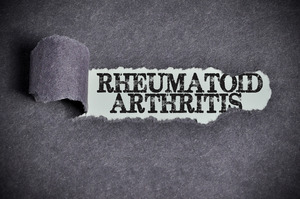
Having rheumatoid arthritis means constantly living with painful, swollen joints. This condition obviously comes with its own challenges, but believe it or not, it can also have an impact on dental implants. People living with rheumatoid arthritis tend to have an increased risk of suffering from implant failure; below is a closer look at this surprising connection and whether it could affect your candidacy for dental implant surgery.
Rheumatoid Arthritis and Dental Implants
One of the major effects of rheumatoid arthritis is decreased mobility. When the joints in your hand are stiff and constantly in pain, it can make it more difficult to perform a number of daily activities. In particular, you may find that you have a harder time brushing and flossing your teeth thoroughly. This can ultimately take a toll on your oral hygiene.
What does this have to do with dental implants? One of the leading causes of dental implant failure is a form of gum disease called peri-implantitis. This infection can damage the gum and bone tissue holding the implant posts in place, causing them to come loose. If rheumatoid arthritis is preventing you from maintaining a clean mouth, you will be more likely to develop peri-implantitis – and thus, also more likely to experience dental implant complications.
Additionally, some of the medications used to manage rheumatoid arthritis can cause problems for dental implants. Rheumatoid arthritis is caused by the immune system attacking the healthy tissues in your joints by mistake; thus, the medications used to combat this problem do so by suppressing the body’s immune response. Unfortunately, this has the side effect of leaving your body more susceptible to infections, which naturally includes those that can lead to dental implant failure.
Can You Get Dental Implants Even If You Have Rheumatoid Arthritis?
The good news is that even if you have rheumatoid arthritis, you may still be considered a candidate for dental implants. Your dentist will carefully review your overall health situation to make sure that the procedure is viable in your case. In particular, they will need to evaluate the medications that you’re currently taking as well as your ability to maintain a healthy mouth.
It’s worth noting that there are steps you can take to reduce the impact that rheumatoid arthritis may have on your dental implants. For example, you can switch from a manual toothbrush to an electric one that makes it easier to clean your teeth. You can also add an antibacterial mouth rinse to your oral hygiene routine to help fight the bacteria that can lead to oral infections.
In short, it’s important to be aware of the negative effect that rheumatoid arthritis can have on dental implants; that said, it will not necessarily disqualify you from being able to enjoy a complete smile again thanks to sturdy, reliable implant posts.
About the Author
Dr. Darren G. Koch has more than 20 years of dental experience. He earned his dental degree at the University at Buffalo, and he received training in cosmetic and implant dentistry during a one-year advanced general dentistry residency at UNC-Chapel Hill. He works alongside local oral surgeons to rebuild his patients’ smiles with long-lasting dental implants. If you would like to schedule your initial dental implant consultation with Dr. Koch at his practice in Cary, visit his website or call (919) 859-6633.

